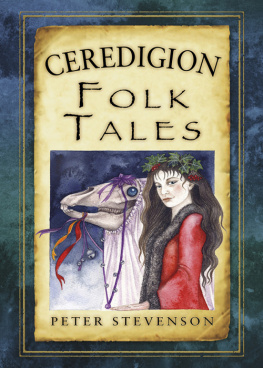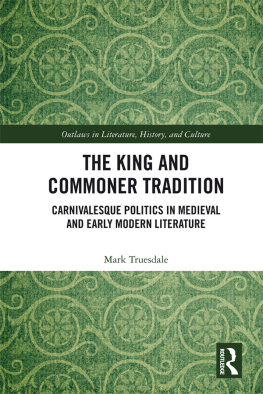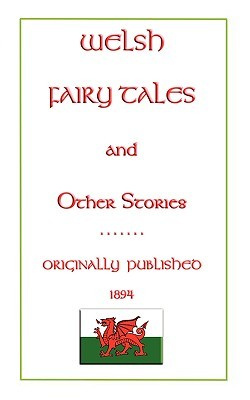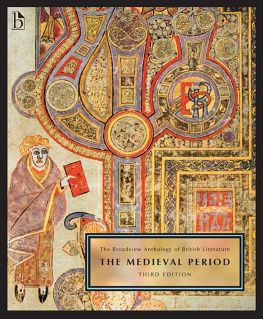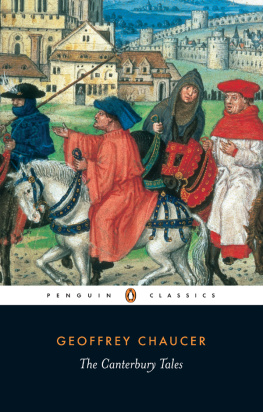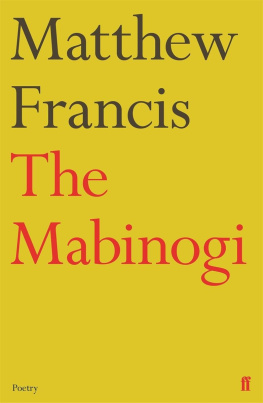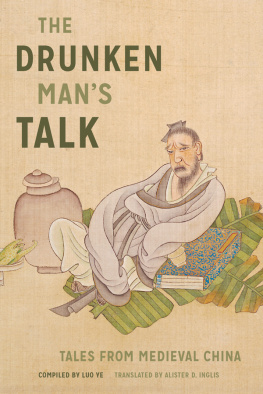The Mabinogi and Other Medieval Welsh Tales
The Mabinogi and Other Medieval Welsh Tales
Edited and Translated by
Patrick K. Ford
UNIVERSITY OF CALIFORNIA PRESS
University of California Press, one of the most distinguished university presses in the United States, enriches lives around the world by advancing scholarship in the humanities, social sciences, and natural sciences. Its activities are supported by the UC Press Foundation and by philanthropic contributions from individuals and institutions. For more information, visit www.ucpress.edu.
University of California Press
Oakland, California
1977, 2019 by The Regents of the University of California
ISBN 978-0-520-30958-6 (pbk.: alkaline paper)
ISBN 978-0-520-97466-1 (ebook)
Library of Congress Catalog Card Number: 76-3885
Manufactured in the United States of America
28 27 26 25 24 23 22 21 20 19
10 9 8 7 6 5 4 3 2 1
For Barbara, Sabrina, and Brigit
CONTENTS
PREFACE
The earliest important translation of the mabinogi into English was that by Lady Charlotte Guest. It is a graceful and romantic rendition, which was well suited to the tastes of her mid-nineteenth-century audiences. Its value for modern students of early Welsh literature is that it has been the only available English translation of the important Taliesin saga. More recently, we have had the rigorously accurate and literal translation of Thomas Jones and Gwyn Jones. It lacks the Taliesin material, but is remarkably faithful to the texts it translates; it remains a valuable English version of the mabinogi proper and other medieval Welsh tales. The present collection is not intended to supersede the Jones and Jones The Maginogion , but to offer a version that, while preserving the style and meaning of the original, is less archaic in tone; it seeks further to offer English readers the first translation of the Taliesin material in over a hundred years, in an authentic and accurate version.
The mabinogi and the other tales are rich sources of Celtic mythological tradition, but they are not less impressive for their literary virtuosity. The translation attempts to reflect faithfully both these qualities, and I have endeavored above all to provide a version that would be readable by university-level students in courses in mythology and medieval literature as well as by the general public. My primary concern is with medieval expressions of native mythological themes, and the selection of texts translated here reflects that concern. The three Arthurian romances, usually grouped with the mabinogi but here omitted, are excellent examples of medieval Welsh storytelling, but whatever their mythological underpinnings, they are undeniably romances. The Dream of Rhonabwy and The Dream of Maxen Wledig fall into yet another class that reflects a much more conscious literary activity, and have also been excluded.
The present translation, like that of the Joneses, is based chiefly upon the diplomatic edition of the White Book of Rhydderch, although readings from the Red Book of Hergest have been adopted when they represent, in my view, the more accurate meaning, or when they supplement significantly the readings from the White Book or supply omissions. I have tried to remain faithful to the text, but it was not always possible to do so and make sense in English. When that happened, I took liberties while remaining true, I hope, to the spirit of the original. For example, I have used the second person plural pronoun throughout; the singular thou and its other forms are archaic in English and tend to convey a quaintness that does not exist in the original, where the two forms are used only to distinguish number, not politeness and familiarity.
The Taliesin and Gwion Bach tales are translated from the late seventeenth-century manuscript National Library of Wales MS. 6209E, copied by David Parry (an amanuensis of Edward Lhuyd) from the sixteenth-century text of Elis Gruffydd. Gruffydds copy, NLW MS. 5276D, unfortunately lacks a leaf. Lady Guest did not have access to this manuscript; her translation of the tale, which differs substantially from the one offered here, was based on eighteenth-century Welsh manuscript sources.
The notes in Sir Ifor Williamss Pedeir Keinc y Mabinogi were of great assistance in working out some of the more resistant passages in the four branches, as was his edition (and the later one by Dr. Brynley Roberts) of the tale of Lludd and Lleuelys. And of course scholarship published since the appearance of the Joneses translation has shed considerable light on many of the problems presented by the material translated here.
The head-notes to each tale are designed to help the reader who is approaching these tales for the first time. The style and content of the stories does not conform to that of the usual short story that modern readers are familiar with, or even to the fairy-tales of traditional cultures. Themes are often confused, narrative threads dropped, and events sometimes are so bizarre that comprehension is difficult, to say the least. The head-notes will discuss briefly and generally the thematic and stylistic elements of each tale.
But however helpful these head-notes may be as brief guides to the individual tales, they cannot serve as an introduction to the tradition that underlies them. To do that properly, we must try to understand why tales were grouped together in a particular way as mabinogi and what the ingredients of individual tales were. We should like to know what the relationship among various tales was and what purpose they served. Because we are dealing with traditional material, we cannot isolate the Welsh stories, but must examine them in the light of tales that survived in the medieval repertory of a sister Celtic country, Ireland. When the meaning of the story is still obscure, we must draw on evidence from other Indo-European cultures. This enterprise will involve us in some rather technical matters, but it is hoped that the non-specialist will find enlightment in the pages of the Introduction, once he has become familiar with the tales.
It is difficult to know where to begin to acknowledge the abundant assistance this work has received. First of all, I must express my appreciation to the Committee on International Exchange of Persons (Fulbright Program), which made it possible for me to work in Wales on a senior research fellowship during 197374. The hospitality of the University College of Wales at Aberystwyth and its Principal, Sir Goronwy Daniel, provided a very pleasant interlude from my teaching duties at the University of California. More specifically, the Department of Welsh made me feel very much at home and did its utmost to facilitate my work at every stage. Nor could I have accomplished even a small part of the labors I undertook without the splendid and expert advice and assistance I received from the staff members of the National Library of Wales. To them and to the Librarian, Mr. David Jenkins, I extend my sincere thanks. To Dr. R. Geraint Gruffydd, Professor of Welsh at Aberystwyth, and Dr. Brynley Roberts I owe a very special debt. Both read the translations (and in the case of the Taliesin material, my transcription of the manuscript as well) and offered numerous valuable suggestions. Most of these were gratefully accepted, but others I resisted, determined for one reason or another that my reading was defensible; the responsibility for any failure, therefore, is entirely my own. It was my great good fortune that during the same period Aberystwyth was the residence of the distinguished American linguist and Celticist, Professor Eric Hamp of the University of Chicago. It is a pleasure to acknowledge his tutelage and friendship. More recently, my colleague, Professor Daniel Melia of the University of California at Berkeley, and my former professor at Harvard University, Charles W. Dunn, read the complete typescript and offered many valuable suggestions; I am very grateful to both of them.


